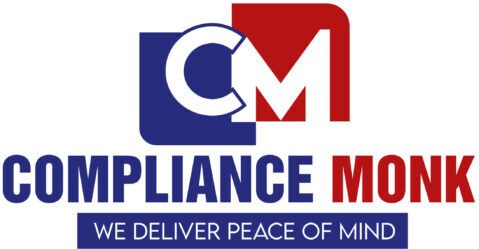RERA Registration for Tamil Nadu Agents
In real estate, trust is everything—and RERA registration ensures you have it. If you’re a real estate promoter or agent in Tamil Nadu, registering under the Real Estate (Regulation & Development) Act (RERA) isn’t just a formality; it’s a legal necessity.
This registration brings transparency, accountability, and credibility to your dealings, assuring buyers that they’re working with a registered professional. Plus, it helps developers and agents stay compliant while fostering a fair and ethical real estate market. With RERA registration, you’re not just selling properties—you’re selling peace of mind.
What Is RERA Registration?
RERA registration is the official process by which real estate projects and services are registered with the Tamil Nadu regulatory authority. This registration is required before engaging in any advertising, marketing, booking, or sale of property, and it applies to both commercial and residential developments.
Why Is RERA Registration Important?
- Transparency: Establishes clear and open communication channels between developers, agents, and buyers.
- Accountability: Helps prevent fraudulent practices by ensuring that all transactions are conducted under regulated standards.
- Consumer Protection: Safeguards the interests of property buyers through strict regulatory oversight.
- Market Access: Opens up more business opportunities by validating your credibility and enabling access to government-backed schemes and benefits.
Who Must Register?
RERA registration is mandatory for:
- Promoters and Developers: Those planning to develop projects, particularly for properties exceeding 500 square meters or involving more than eight apartments.
- Real Estate Agents: Agents involved in advertising, marketing, and transacting properties within RERA-registered projects.
- All Stakeholders: Anyone involved in facilitating real estate transactions under the RERA framework must be registered.
Documents Required for RERA Registration
For Promoters:
- Proof of Identity and Address: Valid documents such as Aadhaar, Voter ID, or Passport.
- Photographs: Recent passport-sized photos.
- PAN Card: Copy of the PAN card.
- Project Documents: Commencement Certificate, Sanction Plan, Layout Plan, and detailed project location information.
- Ownership Proof: Legal documents verifying the promoter’s ownership of the project land.
- Experience Details: Information regarding past projects, including project names, statuses, and any history of delays.
For companies, additional documents include:
- Certificate of Incorporation
- CIN/TAN numbers
- Memorandum and Articles of Association
- Audited balance sheets for the past three years
- Director details
For Real Estate Agents:
- Proof of Identity and Address: Standard identification documents.
- Photographs: Recent passport-sized images.
- Company Details: Information regarding the agent’s company, including its registered address, MOA, AOA, and company type.
Note: Additional documents may be required as per specific state regulations.
RERA Registration Process
- Filing the Application:
Complete the prescribed RERA registration form provided by the Tamil Nadu government, ensuring that all required details and documents are included. Fees may be paid via demand draft, banker’s cheque, or through online payment options. - Document Submission:
Submit the filled application along with the necessary documents. The regulatory authority will review your submission and issue an approval or rejection within 30 days. Lack of response within this period is typically treated as implicit approval. - Issuance of the Registration Certificate:
Once approved, you will receive your RERA registration certificate, which confirms your compliance with the RERA Act. This certificate is valid throughout Tamil Nadu and enhances your business’s credibility.
How Compliance Monk Can Assist
Compliance Monk offers expert support throughout the RERA registration process by:
- Guiding You Through Eligibility: We help determine if your project or agency meets the necessary criteria.
- Assisting with Documentation: Our team ensures that all required documents are accurately prepared and submitted.
- Managing the Application Process: We handle the online submission, track your application, and liaise with authorities to expedite approval.
- Providing Ongoing Compliance Support: Beyond registration, we offer continuous assistance to keep you updated on regulatory changes.
For assistance contact Compliance Monk today!
FAQs
1. What is RERA Registration?
RERA Registration is the mandatory process by which real estate promoters, developers, and agents register their projects and services under the Real Estate (Regulation & Development) Act to ensure transparency and accountability in transactions.
2. Why is RERA Registration important?
It ensures legal compliance, enhances credibility, protects consumer interests, and facilitates access to government schemes and market opportunities.
3. Who must obtain RERA Registration?
Promoters, developers, and real estate agents involved in advertising, marketing, and transacting properties—especially those dealing with projects exceeding specified size thresholds—must register.
4. What documents are required for RERA Registration?
For promoters, documents typically include proof of identity, address, PAN card, incorporation certificate, project layout, and ownership proofs, along with relevant project details. Real estate agents need to provide identification documents, photographs, and company details such as MOA and AOA.
5. What is the process for RERA Registration?
The process involves completing the prescribed registration form, submitting the required documents along with the application fee, and receiving a registration certificate after verification by the Tamil Nadu regulatory authority.
6. How long does the RERA registration process take?
The verification process usually takes up to 30 days. If no response is received within this period, the application is typically considered approved.
7. How long is the RERA registration certificate valid?
The certificate remains valid throughout the state, with the requirement to stay updated on any regulatory changes as specified by the state authority.
